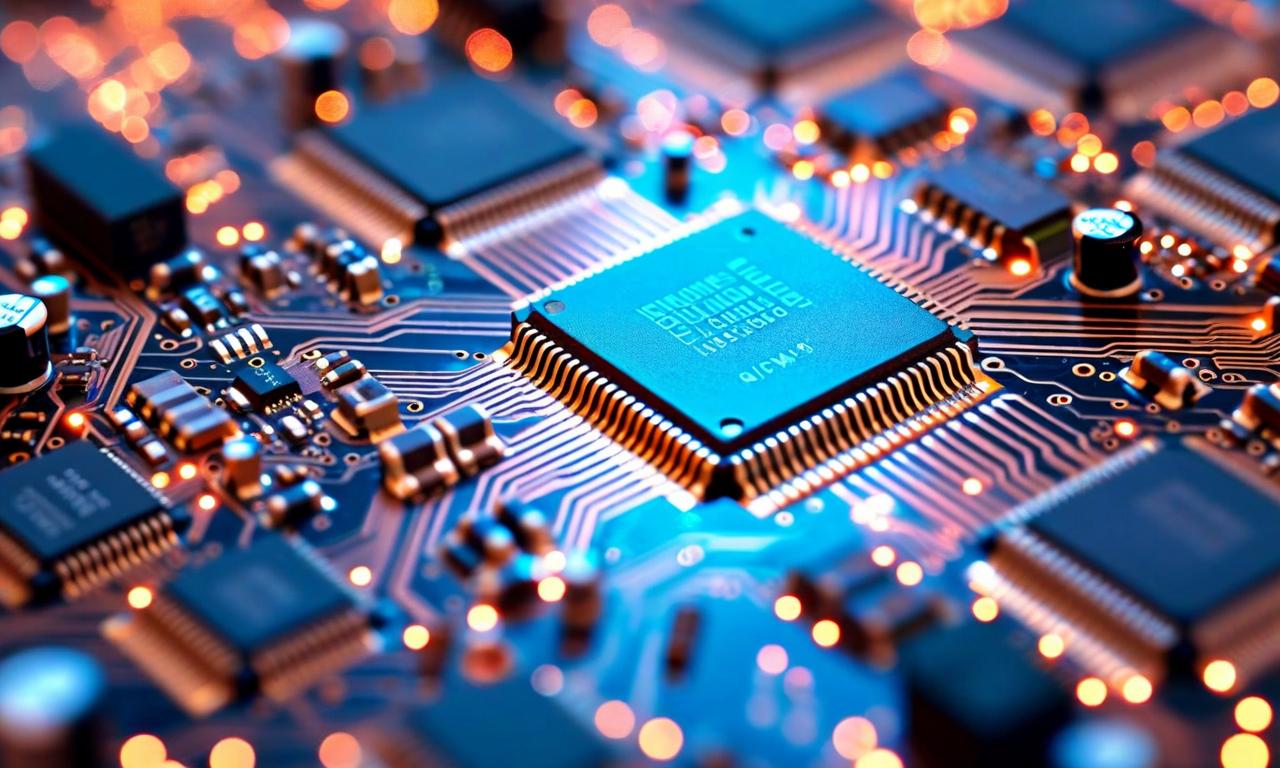Nvidia's $1 Billion Strategic Investment in Nokia Boosts AI Networking Capabilities
Nvidia has made a $1 billion equity investment in Nokia, acquiring a 2.9% stake. This strategic partnership aims to accelerate AI-powered networking solutions for 5G and 6G technologies. Nvidia will enhance Nokia's network software capabilities, while exploring Nokia's data center technology for AI infrastructure. Nokia's shares surged 17% following the announcement. The collaboration underscores the growing importance of AI in telecommunications and positions Nokia as a Western alternative to Huawei in communications equipment.

*this image is generated using AI for illustrative purposes only.
Nvidia, the leading graphics chip manufacturer, has announced a significant move into the telecommunications sector with a $1 billion equity investment in Nokia, the Finnish telecom giant. This strategic partnership aims to accelerate the development of AI-powered networking solutions, potentially reshaping the landscape of 5G and future 6G technologies.
Investment Details
| Aspect | Details |
|---|---|
| Investment Amount | $1.00 billion |
| Stake Acquired | 2.90% |
| Shares Purchased | 166 million |
| Price per Share | $6.01 |
Strategic Partnership Objectives
The collaboration between Nvidia and Nokia is multifaceted:
- Network Software Acceleration: Nvidia's chips will be utilized to enhance Nokia's 5G and 6G network software capabilities.
- AI Infrastructure Exploration: Nvidia plans to investigate Nokia's data center technology for potential integration into its AI infrastructure.
Market Impact and Nokia's Position
Nokia's strategic moves have positioned it favorably in the market:
- Share Price Surge: Nokia's shares experienced a remarkable 17% increase in Helsinki, marking the most significant intraday gain since 2013.
- Market Performance: The company's latest quarterly results surpassed Wall Street estimates, buoyed by the growing demand for AI-driven computing capacity.
- Strategic Acquisition: Prior to this partnership, Nokia acquired Infinera Corp. for $2.30 billion, strengthening its AI data center networking capabilities.
Industry Implications
This investment highlights several key industry trends:
- AI in Telecommunications: The partnership underscores the growing importance of AI in advancing telecom infrastructure.
- Western Alternative: Under CEO Justin Hotard's leadership, Nokia is positioning itself as a primary Western alternative to Huawei for comprehensive communications equipment.
- Nvidia's Expansion Strategy: This investment aligns with Nvidia's broader spending strategy, which includes investments in various AI-related ventures and technologies.
Conclusion
The Nvidia-Nokia partnership represents a significant development in the convergence of AI and telecommunications. As 5G networks continue to expand and 6G technologies begin to emerge, this collaboration could play a crucial role in shaping the future of global communications infrastructure. The market's positive reaction to this news suggests that investors see substantial potential in this strategic alliance.



























